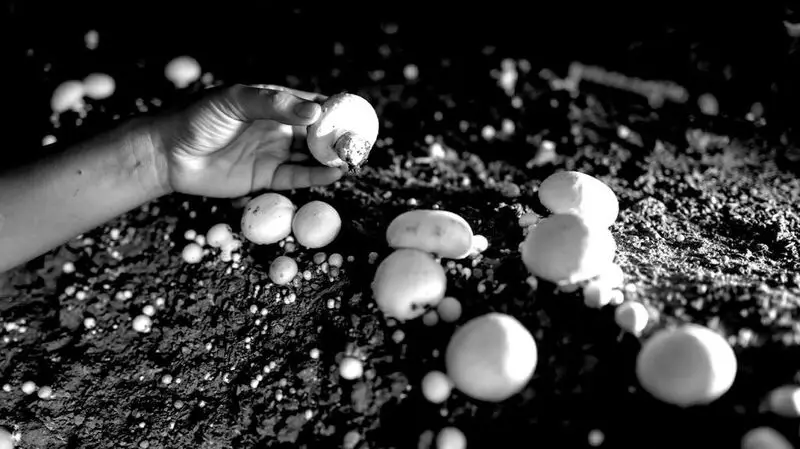
- The role mushroom compounds could play in preventing different conditions is a feature of much current research.
- There are differences in the compounds found in culinary mushrooms and mushrooms used in traditional medicine. The regulation of both also differs.
- A group of researchers from California looked at the impact of a culinary mushroom, white button mushroom extract, on the progression of prostate cancer in mice and patients.
- They propose that white button mushroom extract enhances the impact of immunotherapy used to treat prostate cancer in mice due to the presence of the polysaccharides in the mushrooms.
The role of white button mushrooms in treating prostate cancer has been investigated in mice and humans.
Researchers from City of Hope Comprehensive Cancer Center, Duarte, California, the U.S., discovered a decline in the amount of specific types of immune-suppressing cells in tumors following treatment with white button mushroom extract in mice and patients with prostate cancer. They also observed an increase in certain types of immune cells known to play a role in destroying cancer cells.
The immune system detects and destroys cells that contain genetic mutations that could lead to problems, including cancer. Immune suppression in the environment cancer exists in allows cancer cells to escape destruction by the immune system, so reducing the immune-suppressing cells in a tumor environment can help the immune system destroy cancer cells.
In a paper published in Clinical and Translational Medicine, the researchers proposed that the presence of polysaccharides in white button mushrooms could explain why treatment with an extract of them can slow the rate of prostate cancer tumor growth. They suggested that this mechanism could complement the role of immune checkpoint inhibitors used to treat the cancer.
Frédéric A. Meunier PhD, Professor of the Single Molecule Neuroscience Laboratory at the Queensland Brain Institute, The University of Queensland, Australia, who was not involved in the study, told Medical News Today this was a “really impressive study”.
“This study is comprehensive going from preclinical animal model to a human clinical trial and showing enhanced immune-mediated tumor suppression of extract from the white button mushroom. This provides a potential nutraceutical approach to delay prostate cancer progression and opens the way for more research on the mechanism underpinning this effect,” he said.
“Their data shows an enhanced inhibition of tumor growth and prolonged survival when given in combination with immunotherapy based on stopping the ability of tumor cells to block programmed cell death,” he added.
His own research has previously explored the role of lion’s mane mushroom extracts on nerve growth in vitro.
Researchers had previously published data showing that myeloid-derived suppressor cells, a type of immune cell that suppresses the immune system and can play a role in the progression of cancer, decreased when prostate cancer patients were given white button mushroom extract tablets. They hypothesized that white button mushrooms could limit prostate cancer progression by suppressing myeloid-derived suppressor cells.
First, they looked at mice. They found that white button mushroom extract given to mouse models of prostate cancer suppresses tumor growth. They showed again that the number of myeloid-derived suppressor cells was reduced in these mice, but other types of immune cells, such as T cells, which attack cancer, were increased in the mice that took the white button mushroom extract.
They showed similar trends in prostate cancer patients. Using blood samples taken from eight prostate cancer patients before and after three months of treatment with white button mushroom extract, they found that myeloid-derived suppressor cells were decreased in these patients, alongside an increase in T cells known to attack cancers and another group of immune cells called natural killer cells, or NK cells.
Further research was then done in mice to investigate how white button mushroom treatment impacted prostate cancer when used in conjunction with an immunotherapy commonly used to treat prostate cancer. By combining anti-PD-1 antibodies given twice per week for 48–50 days with white button mushroom treatment in mice, researchers showed enhancement of tumor growth inhibition compared to the immunotherapy alone. They also showed that the mice receiving white button mushroom treatment lived 8 days longer.
Researchers point to the fact that white button mushrooms contain polysaccharides (β-glucan), which are known to play a role in immune response in cells when included in the diet. They state that other studies have been done showing that the same impact of polysaccharides taken from mushrooms on myeloid-derived suppressor cells in other studies by other teams, pointing to a potential reason for their findings.
“Overall, this paper not only opens the field to more research to better understand the mechanism conferring this additional effect but also suggests that b-glycans could have broader cancer applications, making mushroom-based compounds a promising addition to the future of immunotherapy,” Meunier said.
“Identifying the specific β-glucan from white button mushrooms responsible for its immune-boosting effects could help further cancer treatment. It would be important to pinpoint the precise β-glucan and understand its molecular action to optimize this additive effect in existing treatments,” he explained.
First author Xiaoqiang Wang, M.D., Ph.D., City of Hope staff scientist and first author of the study pointed out that the study was ongoing and that this was a Phase II trial.
“Our study emphasizes the importance of seeking professional guidance to ensure safety and to avoid self-prescribing supplements without consulting a healthcare [professional],” he said in a press release.
“Some people are buying mushroom products or extract online, but these are not FDA-approved. While our research has promising early results, the study is ongoing. That said, it couldn’t hurt if people wanted to add more fresh white button mushrooms to their everyday diet.”
— Xiaoqiang Wang, M.D., Ph.D.





